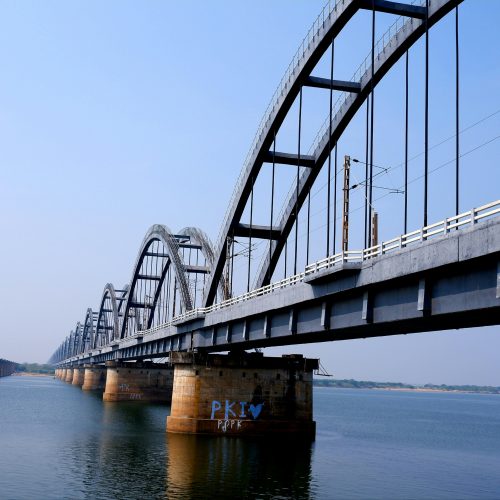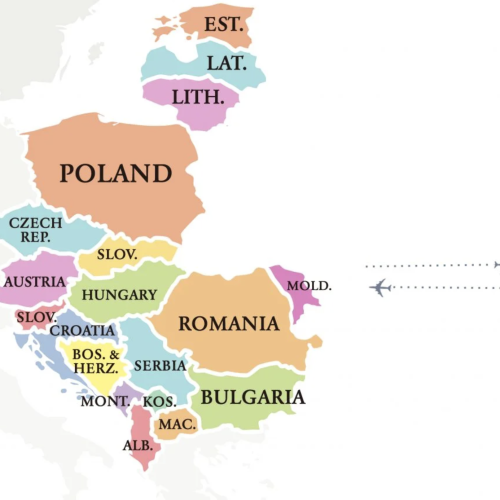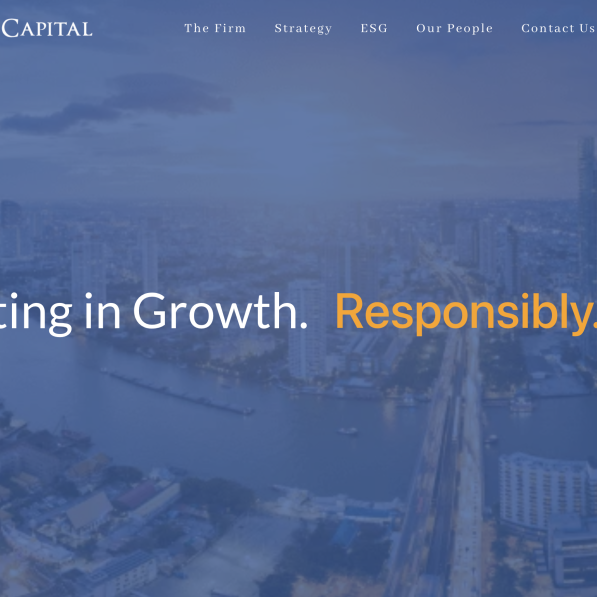- The Latest Private Equity News Thailand -


Latest Private Equity News Thailand
Thailand has seen a surge in private equity investments in recent years. The country's growing economy and favorable investment climate have made it an attractive destination for PE Firms so lets take a look at the latest Private Equity News Thailand has right now
Latest Private Equity News Thailand: Insights and Updates on the Country's Investment Landscape
According to a recent report by Bain & Company, the private equity industry in Thailand has grown at a compound annual growth rate of 33% over the past decade. The report also states that private equity firms in Thailand have raised a total of $5.7 billion in capital over the past decade, with $1.5 billion raised in 2022 alone.
Key Takeaways
Private equity is a form of investment where investors pool their money together to invest in private companies that are not publicly traded.
Thailand has seen a surge in private equity investments in recent years, with the private equity industry in Thailand growing at a compound annual growth rate of 33% over the past decade.
Private equity firms in Thailand have raised a total of $5.7 billion in capital over the past decade, with $1.5 billion raised in 2022 alone.
Current State of Private Equity in Thailand
Private equity in Thailand has been growing steadily over the years, with a number of private equity firms setting up shop in the country. According to data from the Thailand Venture Capital Association, private equity investment in Thailand reached a record high of THB 65.9 billion in 2020, up from THB 50.9 billion in 2019.
The private equity industry in Thailand is still in its early stages of development, but it has shown strong growth potential. The industry has been driven by a number of factors, including the country's growing economy, favourable government policies, and an increasing number of high-quality investment opportunities.
One of the key drivers of growth in the private equity industry in Thailand has been the country's strong entrepreneurial culture. There are a large number of innovative and dynamic companies in Thailand that are looking for funding to help them grow and expand. Private equity firms have been quick to recognise this and have been investing heavily in these companies.
Private Equity News Thailand
Another factor that has contributed to the growth of the private equity industry in Thailand is the government's support for the industry. The government has introduced a number of policies aimed at encouraging investment in the country, including tax incentives for investors and the establishment of a regulatory framework for the industry.
Despite the positive outlook for the private equity industry in Thailand, there are still challenges that need to be addressed. One of the main challenges is the lack of available data on the industry. There is a need for more comprehensive data on private equity investments in Thailand, including information on deal sizes, sectors, and exit strategies.
In conclusion, the private equity industry in Thailand is showing strong growth potential, driven by a number of factors including the country's growing economy, favourable government policies, and an increasing number of high-quality investment opportunities. However, there are still challenges that need to be addressed, including the need for more comprehensive data on the industry.
Key Private Equity Deals
Private equity investors have been actively involved in the Thai market, with several notable deals and investments in recent years. This section highlights some of the key private equity deals in Thailand.
Notable Acquisitions
One of the most significant private equity deals in Thailand was the acquisition of Tesco Lotus, the Thai retail arm of UK-based Tesco, by CP Group and Charoen Pokphand Holding for $10.6 billion in 2020. The deal marked the largest-ever private equity acquisition in Southeast Asia and gave CP Group a dominant position in the Thai retail market.
In 2021, Blackstone acquired a majority stake in Siam Cement Group's packaging business for $3.2 billion, making it the largest private equity deal in Thailand that year. The deal aimed to capitalize on the growing demand for sustainable packaging solutions in Southeast Asia.
Another notable acquisition was the purchase of a majority stake in the Thai restaurant chain MK Restaurants by CVC Capital Partners for $1.1 billion in 2019. The deal allowed CVC to expand its presence in the Southeast Asian food and beverage sector.
Significant Investments
In addition to acquisitions, private equity firms have also made significant investments in Thai businesses. In 2022, Warburg Pincus invested $500 million in the Thai digital payments platform, True Digital Group, to support its expansion in Southeast Asia. The investment marked Warburg Pincus' largest-ever investment in Thailand.
In 2021, KKR invested $650 million in the Thai hospitality and leisure company, Asset World Corp, to support its growth and expansion plans. The investment allowed Asset World Corp to weather the impact of the COVID-19 pandemic and position itself for future growth.
In 2020, Baring Private Equity Asia invested $200 million in the Thai e-commerce platform, aCommerce, to support its expansion in Southeast Asia. The investment aimed to capitalize on the growing demand for e-commerce solutions in the region.
Overall, private equity firms have been active in the Thai market, making significant investments and acquisitions in various sectors. These deals have allowed private equity firms to expand their presence in Southeast Asia and capitalize on the region's growing economy.
Venture Capital Landscape
Thailand's venture capital landscape has been experiencing significant growth in recent years, with an increasing number of investors looking to invest in the country's thriving startup ecosystem. Venture capital firms are actively seeking out innovative entrepreneurs and startups to invest in, providing them with the necessary funding and resources to help them grow and succeed.
According to a report by the Thai Venture Capital Association (TVCA), the total amount of venture capital investments in Thailand reached THB 13.2 billion in 2020, a significant increase from the previous year. This growth is expected to continue in the coming years, with more and more investors looking to tap into the country's vibrant startup scene.
One of the key factors driving this growth is the Thai government's commitment to supporting the startup ecosystem. The government has launched several initiatives aimed at promoting entrepreneurship and innovation, such as the Thailand 4.0 policy, which aims to transform the country into a high-income nation driven by technology and innovation.
In addition to government support, there are also several private sector players that are actively investing in Thailand's startup ecosystem. These include both local and international venture capital firms, as well as corporate venture capital arms of established companies.
Venture capital firms are not only providing funding to startups, but also offering mentorship, guidance, and access to their networks of contacts and resources. This support is crucial for startups in their early stages, as they often lack the experience and resources needed to succeed.
Overall, Thailand's venture capital landscape is poised for continued growth in the coming years, as more and more investors recognise the potential of the country's vibrant startup ecosystem. With government support and the active participation of private sector players, the future looks bright for entrepreneurs and startups in Thailand.
Real Estate and Securities
Private equity firms continue to invest heavily in Thailand's real estate and securities markets. In 2023, private-equity fund 9 Basil, backed by Thailand's Chiaravanont family, among others, acquired a residential development in Bangkok worth US$120 million. Similarly, Ally Kex Private Equity Trust, Thailand's first private equity trust dedicated to real estate, has received seed funding of 2 billion baht ($55 million) to invest in Thai properties.
The M&A market in Thailand's securities industry has also seen significant activity. In 2021, SCB Securities, a subsidiary of one of Thailand's largest commercial banks, proposed to acquire 51% interest in Bitkub Online, a leading digital asset exchange and the latest unicorn in Thailand, with a transaction value of approximately $100 million.
Private equity funds are also investing in mid-sized Thai companies with high potential. LH-THAIPE1UI, Thailand's first-ever Thai private equity fund, has invested in NARA Thai Cuisine, a leading Thai restaurant group, and DRJL Group, the owner of Thailand's leading facial serum brand.
Overall, private equity firms are attracted to Thailand's growing real estate and securities markets. They are investing significant amounts of capital in both established and emerging companies in these sectors, with the aim of generating strong returns for their investors.
Private Equity News Thailand: Investment Strategies and Targets
Fullerton Fund Management has successfully raised $100 million for its Thai Private Equity strategy, which targets small to mid-market companies with exposure to Thailand's long-term growth. The strategy aims to deliver outsized returns of two times or more of invested capital.
The investment strategy is focused on companies that have strong fundamentals, a competitive edge, and a clear path to growth. Fullerton's investment team is experienced in identifying such companies and has a deep understanding of the local market. The team aims to add value to the portfolio companies by providing strategic guidance, operational support, and access to Fullerton's network of industry experts.
The Thai Private Equity strategy is now in the latter stages of its capital-raising phase, with initial deployments already made into underlying companies. Fullerton is confident in the strategy's ability to deliver attractive returns to its investors.
The investment target of Fullerton's Thai Private Equity strategy is small to mid-market companies with a strong competitive position and a clear path to growth. These companies are expected to benefit from Thailand's long-term economic growth and the post-Covid valuations that currently prevail in the market.
Fullerton's Thai Private Equity strategy is aligned with the Thai government's investment promotion strategy (2023-2027), which aims to promote investment in innovation, technology, and creativity, competitiveness and the ability to adapt quickly, and inclusiveness, taking into account environmental and social sustainability. The strategy is also in line with the Thai government's efforts to promote private investment in the country.
Fullerton's Thai Private Equity strategy is sponsored by KBank Private Banking, which is one of the leading private banks in Thailand. KBank Private Banking provides a range of financial services to high-net-worth individuals and institutional investors. The partnership between Fullerton and KBank Private Banking brings together Fullerton's investment expertise and KBank Private Banking's distribution network, providing investors with access to a unique investment opportunity in Thailand's private equity market.
Fundraising and Limited Partners
Private equity fundraising in Thailand has faced some challenges in recent years. According to PitchBook, fundraising for Asia-focused private equity funds has slowed from last year's record pace, as investors contend with volatility and other challenges in global markets. However, some investment firms have still been successful in raising capital for their Thai private equity strategies.
One example is Fullerton, an Asia-based investment specialist that has raised US$100 million for its Thai direct private equity strategy. The strategy targets small to mid-market companies with exposure to Thailand's long-term growth, with potential to capitalise on attractive post-Covid valuations, and aims to deliver outsized returns of two times MOIC and 20% IRR over the investment period. This successful fundraising round demonstrates that there is still investor appetite for Thai private equity.
Private Equity News Thailand
Limited partners (LPs) play an important role in private equity fundraising by providing capital to investment firms. According to Blueprint Forest, a value-oriented investment firm of a multi-family office, LPs are increasingly interested in Southeast Asia's private equity market due to the region's strong economic growth and attractive valuations. Blueprint Forest has allocated $120 million to its Southeast Asian strategy, including Thailand.
Investment vehicles for private equity in Thailand include funds, co-investments, and direct investments. Funds are the most common investment vehicle, with many investment firms raising capital through private equity funds. Co-investments involve LPs investing alongside investment firms in specific deals.
Direct investments involve investment firms investing directly in companies without using a fund structure. The choice of investment vehicle depends on the investment firm's strategy and the preferences of its LPs.
Overall, while private equity fundraising in Thailand has faced some challenges, there are still opportunities for investment firms to raise capital and invest in Thai companies.
LPs are increasingly interested in Southeast Asia's private equity market, and investment vehicles such as funds, co-investments, and direct investments provide flexibility for investment firms and LPs alike.
Thailand vs Southeast Asia
Thailand is one of the leading countries in Southeast Asia in terms of private equity investment. However, the private equity deal value in Southeast Asia halved in 2022 due to an uncertain macroeconomic backdrop and challenging exit conditions, as per a report by Bain [1].
Comparison with India
When compared to India, Thailand's private equity market is still in its early stages. However, the country has seen a steady increase in private equity transactions over the years. Thailand's capital markets are competitive in some areas on costs, but efficiency can improve in other areas such as equity trading and mutual funds [3].
Comparison with China
In comparison to China, Thailand's private equity market is significantly smaller. However, the country has a more developed legal framework and regulatory environment, which makes it an attractive destination for foreign investors. In addition, the country's strategic location in Southeast Asia makes it an ideal gateway to the region [5].
Overall, Thailand's private equity market has seen steady growth over the years and has become an attractive destination for foreign investors. While the market is still relatively small when compared to other countries in the region, the country's strategic location and favourable regulatory environment make it an ideal destination for private equity investment.
[1] https://asia.nikkei.com/Spotlight/DealStreetAsia/Southeast-Asia-s-private-equity-deal-value-halved-in-2022-Bain [3] https://www.mckinsey.com/featured-insights/future-of-asia/countries-and-regions/southeast-asia/southeast-asia-perspectives/improving-thailands-capital-market-competitiveness-and-efficiency [5] https://www.privateequityinternational.com/thai-private-equity-a-beginners-guide/
Private Equity News Thailand Trends and Future Outlook
Private equity investments in Thailand have been on the rise in recent years. As per the Asia-Pacific Private Equity Report 2022 by Bain & Company, Thailand saw a 44% increase in deal value in 2021, reaching $5.1 billion. However, the report also highlighted that the pandemic has impacted the industry, with deal value dropping by 44% in 2022 to $198 billion.
Despite the pandemic, the future outlook for private equity in Thailand remains positive. The country's strong economic fundamentals, including a skilled workforce, a growing middle class, and a strategic location in the heart of Southeast Asia, make it an attractive investment destination for private equity firms.
One trend that is likely to continue in the coming years is the increase in dry powder available for investment. Dry powder refers to the cash reserves that private equity firms keep on hand to invest in new opportunities. According to a report by Intertrust Group, the Asia-Pacific region has seen a significant increase in dry powder, with a record $430 billion available for investment in 2021. This trend is expected to continue in the coming years, providing more opportunities for private equity firms to invest in Thailand.
Another trend that is likely to shape the future of private equity in Thailand is the increasing focus on environmental, social, and governance (ESG) factors. As investors become more aware of the impact of their investments on the environment and society, private equity firms are under increasing pressure to consider ESG factors when making investment decisions. This trend is likely to continue in the coming years, with private equity firms in Thailand expected to pay more attention to ESG factors when evaluating potential investments.
Private Equity News Thailand
In conclusion, the future outlook for private equity in Thailand remains positive despite the pandemic. Private equity firms are likely to have more dry powder available for investment, and there is an increasing focus on ESG factors. These trends are likely to shape the industry in the coming years, providing more opportunities for private equity firms to invest in Thailand.
Registration and Account Management
Private equity investors in Thailand are required to register with the Securities and Exchange Commission (SEC) before they can make any investments. The registration process involves submitting an application along with the necessary documents and information. The SEC will then review the application and notify the investor of the outcome.
To register, investors must first create an account on the SEC's online registration system. This requires providing personal information such as name, address, and contact details. Once the account is created, investors can submit their application and track its progress through the online system.
It is important to note that only accredited investors are eligible to invest in private equity in Thailand. To be accredited, investors must meet certain criteria such as having a net worth of at least THB 50 million or an annual income of at least THB 4 million.
Investors should also be aware of the account management requirements for private equity investments. This includes keeping accurate records of all transactions and ensuring compliance with all relevant regulations. Investors should also regularly review their investments and consider seeking professional advice if necessary.
Overall, registering and managing a private equity account in Thailand requires careful attention to detail and compliance with the relevant regulations. By following the necessary steps and seeking professional advice when needed, investors can make informed and successful private equity investments in Thailand.
Terms, Conditions and Privacy
When it comes to private equity investments in Thailand, it is important to understand the terms and conditions of the investment, as well as the privacy policy of the investment firm. Private equity firms typically have strict investment criteria, which may include minimum investment amounts, holding periods, and targeted returns. It is important for investors to carefully review these terms and conditions before making an investment to ensure that they fully understand the risks and potential rewards of the investment.
In addition to the investment terms and conditions, it is also important to review the privacy policy of the private equity firm. The privacy policy outlines how the firm collects, uses, and protects personal information provided by investors. This may include information such as names, addresses, and financial information. Investors should ensure that they are comfortable with the privacy policy and that they understand how their personal information will be used and protected.
Some private equity firms may also require investors to sign a non-disclosure agreement (NDA) before receiving detailed information about an investment opportunity. An NDA is a legal agreement that prohibits the recipient from disclosing confidential information to third parties. Investors should carefully review and understand the terms of any NDA before signing, as it may limit their ability to discuss the investment opportunity with others.
Overall, understanding the terms and conditions and privacy policy of a private equity investment is crucial for investors to make informed decisions and protect their personal information. It is recommended that investors consult with a financial advisor or legal professional before making any investment decisions.
Email Updates and Financial Services
Private equity investors in Thailand who want to stay up-to-date with the latest news and trends can sign up for email updates from various financial services providers. These updates can cover a wide range of topics, including market analysis, deal activity, regulatory changes, and more.
For example, Krungsri Securities offers research reports and daily market updates to its clients. These reports cover various sectors, including banking, energy, and real estate. Clients can also receive alerts on significant market events and changes in regulations that may affect their investments.
Another provider of email updates is Kasikorn Securities, which offers daily market analysis reports and research reports covering various sectors, including consumer goods, healthcare, and technology. Clients can also receive alerts on significant market events and changes in regulations that may affect their investments.
In addition to email updates, private equity investors can also benefit from financial services providers that offer a wide range of services, including investment banking, asset management, and securities trading. These providers can help investors identify potential investment opportunities, manage their portfolios, and navigate complex regulatory environments.
For example, SCB Securities offers investment banking services, asset management services, and securities trading services to its clients. The company has a strong track record of successful deals in Thailand, including mergers and acquisitions, debt and equity offerings, and more.
Another provider of financial services is CIMB Securities, which offers investment banking services, asset management services, and securities trading services to its clients. The company has a strong presence in Southeast Asia and has a deep understanding of the local markets, which can be valuable for private equity investors looking to expand their investments in the region.
Overall, private equity investors in Thailand can benefit from staying up-to-date with the latest news and trends in the market. Email updates and financial services providers can help investors make informed decisions and navigate the complex regulatory environment.
Private Equity News Thailand Frequently Asked Questions
What are the current trends in private equity investment in Thailand?
Private equity investment in Thailand has been on the rise in recent years, with a growing number of firms looking to invest in the country's fast-growing economy. One of the key trends in the industry is a focus on investing in companies that are well-positioned to benefit from the country's strong growth potential.
What is the outlook for private equity in Asia in the coming years?
The outlook for private equity in Asia remains positive, with many investors continuing to see the region as a key growth market. While there are challenges facing the industry, such as increased competition and regulatory uncertainty, many firms remain optimistic about the opportunities available in the region.
What are the major challenges facing private equity firms in Asia?
One of the major challenges facing private equity firms in Asia is increased competition, particularly from local firms. In addition, regulatory uncertainty and a lack of transparency in some markets can make it difficult for firms to navigate the region's complex business environment.
How has the private equity landscape in Thailand changed in recent years?
The private equity landscape in Thailand has undergone significant changes in recent years, with a growing number of firms entering the market. In addition, there has been a shift towards investing in companies that are well-positioned to benefit from the country's strong growth potential, such as those in the technology and healthcare sectors.
What is the impact of the latest McKinsey private equity report on the industry in Asia?
The latest McKinsey private equity report has highlighted the significant growth potential of the private equity industry in Asia, particularly in the technology and healthcare sectors. The report has also emphasized the importance of developing strong local networks and building relationships with key stakeholders in order to succeed in the region.
What are the key factors driving private equity investment in Greater China?
The key factors driving private equity investment in Greater China include the region's strong economic growth, increasing consumer demand, and a growing middle class. In addition, the Chinese government's focus on innovation and technology has created opportunities for private equity firms to invest in companies that are at the forefront of these industries.

The Latest Private Equity News Thailand












































